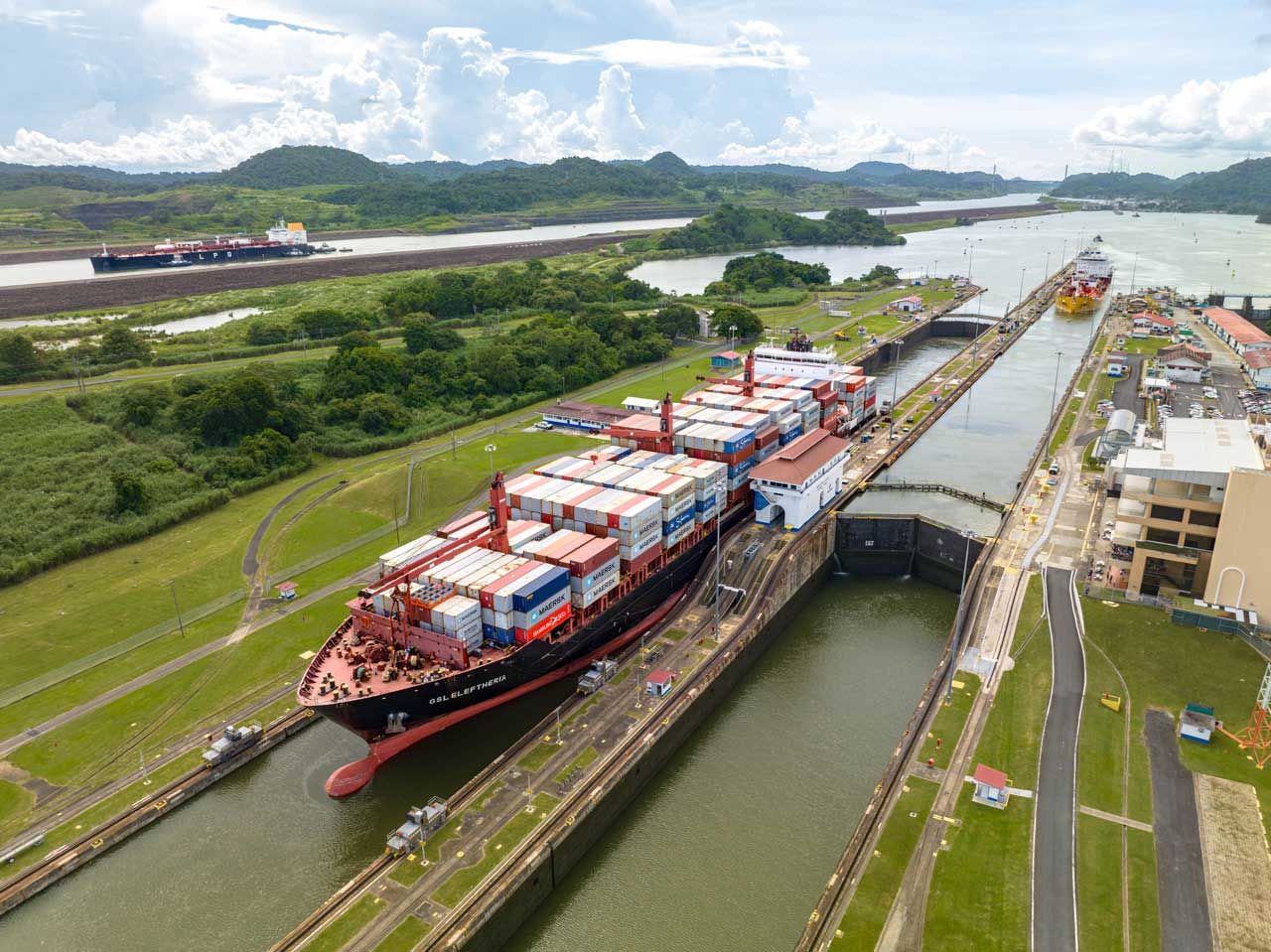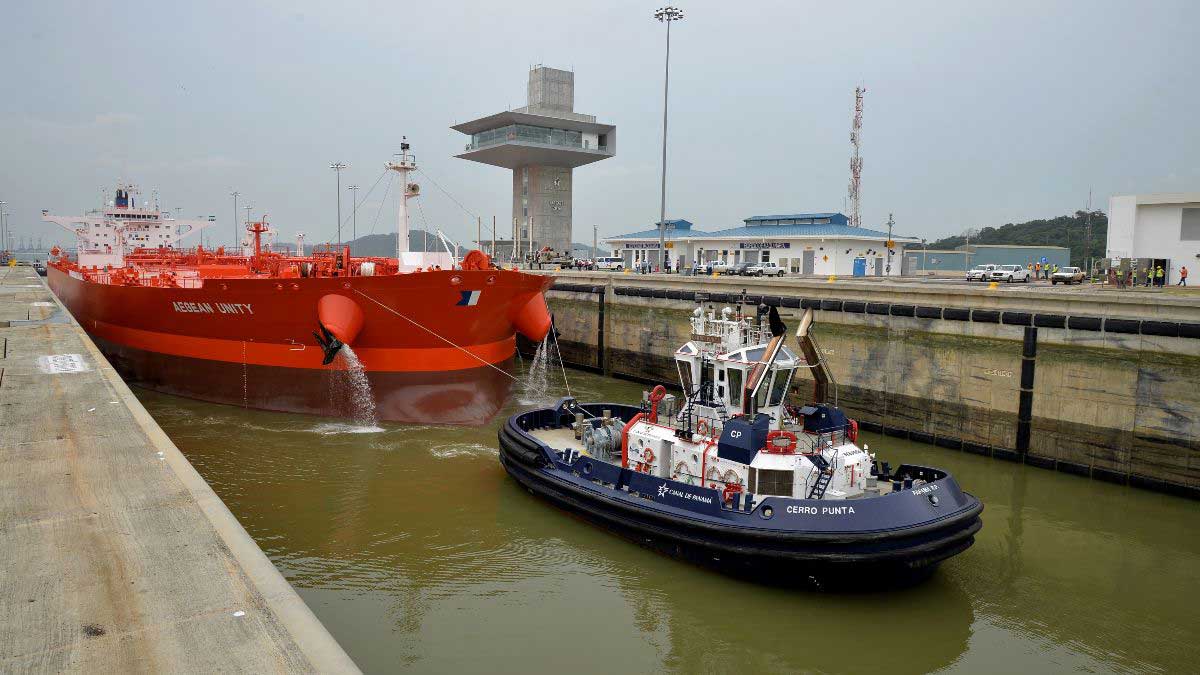Florida ’s Largest Port is the Latest to Strike Agreement with the Panama Canal;
Alliance Will Boost Trade Between Tampa and Asia Through the Panama Canal;
“All-Water Route” is Safe, Reliable and Economical Link to Bring Asian Goods to U.S. Consumers
PANAMA CITY, Panama, October 7, 2005 – With more than 60 percent of Panama Canal traffic originating from or traveling to the East Coast of the United States, the Panama Canal Authority (ACP) yesterday announced an historic move to boost trade by striking a strategic alliance with the Tampa Port Authority. The alliance will increase cooperation – such as joint marketing – between the Panama Canal and the Port of Tampa; it will also seek to boost trade along the “ All-Water Route,” the route from Asia to the U.S. East Coast via the Panama Canal.
Yesterday’s event was highlighted by a formal signing of a Memorandum of Understanding (MOU) in Panama by Administrator/CEO of the ACP Alberto Alemán Zubieta and Executive Director and CEO of the Tampa Port Authority Richard Wainio. By mutual agreement the ACP/Tampa MOU will continue for one year and will be renewable on an annual basis. Also attending the ceremony were: Second Vice-President of the Republic of Panama and Administrator of the Panama Maritime Authority Rubén Arosemena Valdés, Minister of Economy and Finance of the Republic of Panama and Chairman of the ACP Board of Directors Dr. Ricaurte Vásquez M., Tampa Port Authority Chairman Gladstone A. Cooper, U.S. Ambassador to Panama William A. Eaton, Mayor of Tampa Pam Iorio, Chairman of the Tampa Chamber of Commerce Sam Ellison, and representatives from the Panama Chapter of the American Chamber of Commerce (AMCHAM).
During the past few years, containerized cargo transiting the Panama Canal on the “ All-Water Route” has experienced significant growth, creating jobs and contributing to economic development.
“We are very excited to begin this new relationship with the Tampa Port Authority. Tampa is one of the fastest growing ports in the United States. We look forward to working with them to provide a safe, reliable and efficient service to our customers and serve the anticipated traffic and tonnage growth of the ‘All-Water Route,’” said Canal Administrator/CEO Alberto Alemán Zubieta. “There will be real, tangible benefits from this agreement between the ACP and Tampa – a win-win situation for our customers, the people living in Tampa/Central Florida and the Canal. The joint marketing, exchange of ideas and the sharing of information on modernization projects demonstrate our desire to execute solutions for the long-term growth needs of the shipping community and international trade,” Alemán concluded.
The Tampa Port Authority is the largest port in Florida and handles nearly 50 million tons of cargo per year. Tampa also is one of the closest full service U.S. ports to the Panama Canal, and its strategic location provides the most direct route to Mexico, Latin America and the Caribbean.
The Port, which reliably moves container, bulk, break bulk, ro-ro, refrigerated and project cargoes, is currently expanding its container terminal handling capacity. Tampa is Florida’s largest market and one of the fastest growing markets in the United States.
“The Tampa Port Authority is pleased to sign this important Memorandum of Understanding with the Panama Canal Authority. This new alliance focuses on promoting the ‘ All-Water Route’ between Asia and the Gulf Coast via the Panama Canal and is important not just for the Port of Tampa and the Canal, but also for international trade. The region is experiencing strong cargo growth and the Tampa Bay/Central Florida market in particular is one of the fastest growing in the United States,” said Tampa Port Director and CEO Richard Wainio.
Specifically, the parties involved may conduct the following:
- Joint Marketing Activities to generate new shipping business via promotions, advertising and public relations activities;
- Data Sharing to forecast future trade flows and market trends;
- Market Studies Exchange that may benefit either party in future product development or business venture;
- Sharing of Information Related to Modernization and Improvement projects that serve as a benefit to business and spur increased demand; and
- Interchange of advanced technology capabilities and programs.
About the Panama Canal Authority
The Panama Canal Authority is the autonomous agency of the Government of Panama in charge of managing, operating and maintaining the Panama Canal. The operation of the Panama Canal Authority is based on its organic law and the regulations approved by its Board of Directors. For more information, please refer to the Panama Canal Authority’s Web site: www.pancanal.com.
The Authority’s responsibility to the Panamanian people is paramount. The Canal belongs to the people and benefits from the Canal should accrue to as many Panamanians as possible. The Authority will plan its future so that it will continually contribute to the economic development and welfare of the citizens of Panama. For nearly 90 years, the Panama Canal has served as the global gateway – a pathway for the shipment of major world commodities. Since the end of 1999, the ACP assumed the responsibility for the management, operation and modernization of the Canal as well as the protection and conservation of its watershed.
About the Tampa Port Authority
The Port of Tampa is the largest economic engine in West Central Florida, impacting 108,000 jobs in a seven-county area and generating an annual economic impact on the region of $13 billion. The Tampa Bay area is Florida’s largest metropolitan market and one of the fastest growing economies in the United States. For more information, please visit the website at www.tampaport.com.




